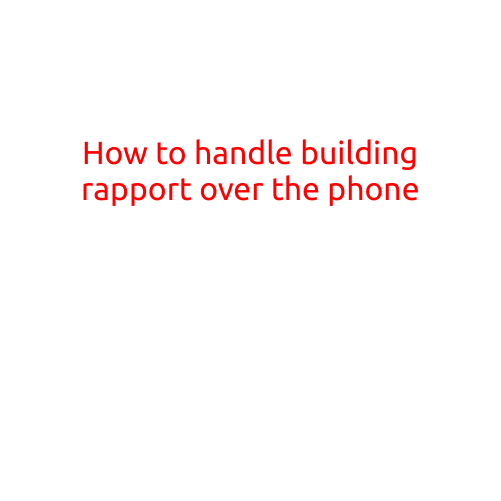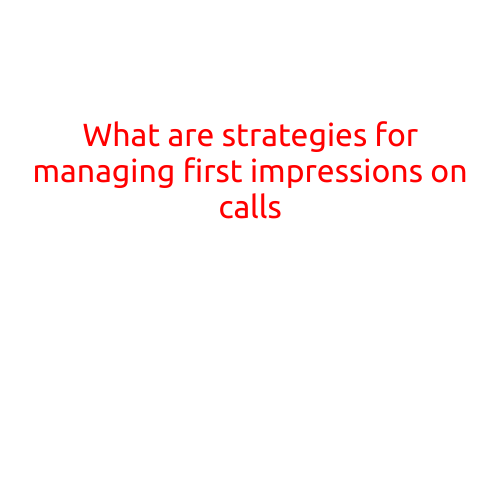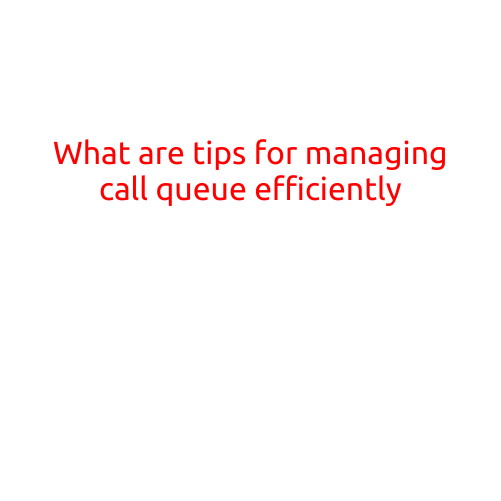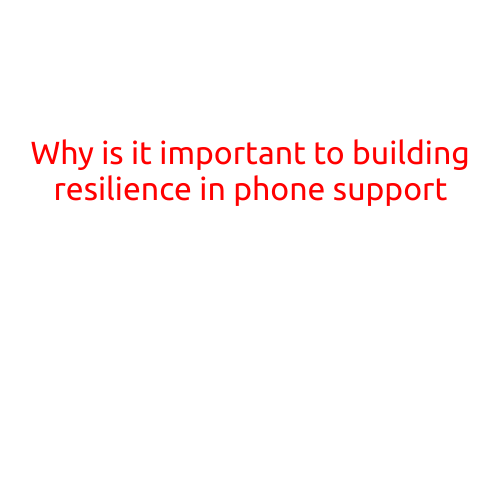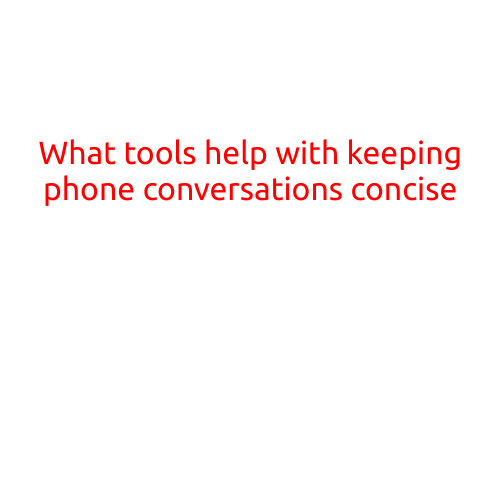
What Tools Help with Keeping Phone Conversations Concise
In today’s fast-paced world, we’re more accustomed to brief, to-the-point interactions than lengthy, drawn-out conversations. This is especially true when it comes to phone calls, where every minute counts. Whether you’re a busy professional, a parent managing a household, or simply someone who values their time, knowing how to keep phone conversations concise can be a game-changer.
Luckily, there are numerous tools and strategies that can help you streamline your phone calls and stay focused on the topic at hand. In this article, we’ll explore some of the most effective tools and techniques to help you keep your phone conversations concise and productive.
1. Meeting Priorities Apps
Tools like Todoist, Trello, and Asana allow you to prioritize your tasks and schedule before a call. By creating a to-do list and setting deadlines, you can ensure that you stay on track and address the most important topics.
2. Voice-to-Text Features
Voice-to-text features, such as Dictation on iOS or Google Assistant on Android, enable you to quickly capture notes and ideas during a call. This not only helps you stay organized but also allows you to refer back to important points later.
3. Call Recordings
Call recording apps like Replay or Callnote allow you to record and review your phone calls. This can help you identify areas for improvement, clarify misunderstandings, and ensure that you’re covering all necessary topics.
4. Agenda Templates
Prepping a call agenda template with shared goals and objectives can help you stay focused and ensure that all parties are on the same page. Tools like Google Forms or Microsoft Excel can help you create a template that suits your needs.
5. Active Listening
Active listening involves giving your full attention to the caller and responding thoughtfully. This technique can help you avoid misunderstandings and stay mindful of the conversation’s flow.
6. Time-Blocking
Schedule your phone calls in dedicated time slots, also known as “time-blocking.” This approach helps you set boundaries, prioritize your time, and avoid multitasking, which can lead to distractions and prolonged conversations.
7. Phone Call Summarizers
Tools like Otter or Trint transcribe your calls and provide a summary of the conversation. This can help you quickly review key takeaways and stay on top of follow-up tasks.
8. Breathing Exercises
Yes, you read that right! Taking short, deep breaths can help you stay calm and focused during a call. This technique can also aid in pausing before responding, giving you time to collect your thoughts and stay concise.
9. Visual Aids
Using visual aids like diagrams, flowcharts, or mind maps can help you communicate complex ideas more efficiently. These tools can also facilitate collaboration and ensure that all parties are on the same page.
10. Call Wrap-Up Templates
Create a call wrap-up template with key action items, next steps, and follow-up tasks. This helps you stay organized, ensure that all parties are aware of their responsibilities, and avoid missed steps.
By incorporating these tools and strategies into your phone conversations, you’ll be better equipped to keep your calls concise, productive, and focused on the topic at hand. Remember, it’s all about prioritizing your time, staying organized, and communicating effectively – with a little practice, you’ll be a master of concise phone conversations in no time!


